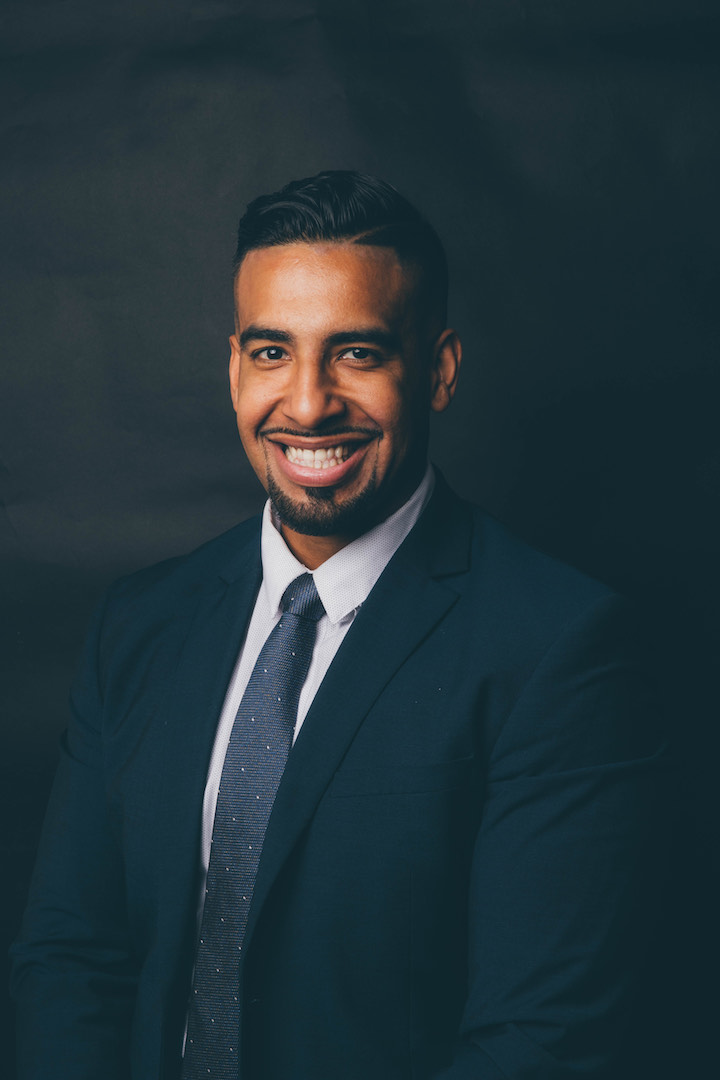Q&A with Commencement Speaker Esmat Ishag-Osman, Ph.D.
 Dr. Esmat Ishag-Osman recently earned his Ph.D. in the Department of Political Science and will be the commencement speaker for the 2021 Spring/Summer Graduate School Virtual Commencement Ceremony taking place on May 5.
Dr. Esmat Ishag-Osman recently earned his Ph.D. in the Department of Political Science and will be the commencement speaker for the 2021 Spring/Summer Graduate School Virtual Commencement Ceremony taking place on May 5.
In anticipation of the celebration, I sat down with him to discuss completing a dissertation in quarantine, what he wishes he knew at the start of his graduate career, and what’s next.
Congratulations on graduating! How’s it feel to finally be done with this leg of your life?
It feels great. But at first it felt weird. My advisor and I, we’d been working toward this endpoint for so long that to finish up the dissertation and get everything published from my living room was a little anticlimactic. But once the day of the defense finally came and my family and friends gathered to watch me defend over Zoom, it was like, ‘OK. Wow. This is really happening!’
It felt weird, too, because I was not sure what I was going to do after the Ph.D., but I got good news a few days after the defense. I actually got a full-time job with the Citizens Research Council of Michigan as the primary research associate for the Detroit Bureau. I’m no longer getting paid like a graduate student!
How are you celebrating graduation?
My family, my wife Saisha and I celebrated as safely as we could, probably two weeks after I defended. We had a little graduation party. And they were very excited I was the commencement speaker.
Why did you choose to pursue a graduate degree at Wayne State?
Wayne State is actually the reason my family and I are in the United States. Both my parents are biracial and half Russian. My mom half Ghanaian. My dad half Sudanese. They both attended the same medical school in the former Soviet Union, which is where I was born. The dream was always to come to the United States, so when Wayne State offered my mom a scholarship to get her Ph.D. in cancer biology, she pivoted from her medical degree and brought us to the U.S. My dad also got his master’s degree at Wayne State once here. I applied to various Ph.D. programs in political science, but when I got accepted to Wayne State, it felt like the right choice because of our family legacy.
I’ve also never been one who’s really liked the idea of being in the ivory tower and circulating ideas and theories with other scholars because, in my opinion, it doesn’t do much, right? The same people read the same articles and we all talk in a circle. But with a field like political science, I always thought you can apply what you learn practically. It seemed like Detroit was kind of the perfect place to do that, what with the city having such a strong history of activism and such a strong grassroots presence in terms of politics and civic life.
Is there anyone in particular who had a significant impact on your education?
Absolutely. First and foremost, my parents. They have been and continue to be the biggest support structure for me. My wife and I have been together now for about six years, married for over a year and a half, so she’s seen it all. If it wasn’t for her support and motivation, I wouldn’t have been able to complete the dissertation. I have to give props to my sister as well, she’s been an awesome source of confidence for me and always gassed me up.
Of course, my advisor Dr. Jeff Grynaviski. I got very lucky with my dissertation chair. My committee, too, for being so on board with whatever Jeff and I decided in terms of my research and being supportive. And Dr. Sharon Lean. That’s my homie! She was my first primary advisor. I started the program very much in undergrad mode. I didn’t really know what I was doing. I didn’t really have a research agenda. I’ve grown so much and she had a lot to do with steering me in the right direction. I would also say Dr. Ronald Brown. Being one of the few professors of color in my department—quite frankly, that representation was huge for me because there’s very few faculty in my program who look like me. I dealt with imposter syndrome a lot in the beginning, and I think his mentorship and just being there was really helpful.
Any advice for future or current students that you wish you’d known at the start of your program?
If you’re doing a Ph.D., have a basic idea of what you want to research coming in. You don’t have to know your specific question, but have a general idea of what you might want to eventually spend two to three, or even four years researching and writing about.
And this is really important: Try to gain some experience outside the university. Academia is changing. It’s much harder for Ph.D. graduates to get a tenure track position. I strongly encourage students to step outside academia and try to find relevant ways to gain experience so they can expand their options for employment after they’re done.
The interview has been lightly edited for readability.
Interviewed by Kristy Case.
How to watch the ceremony
Catch the Graduation School Commencement Ceremony at 9 a.m. on May 5 on commencement.wayne.edu/celebrations or the Wayne State University YouTube Channel.